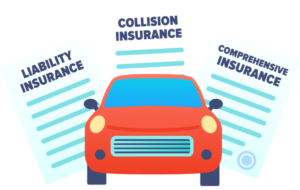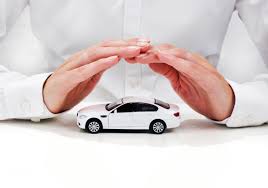Why Civil Auto Coverage Is a Must-Have for Every Driver

Driving can be a bit scary, but civil auto coverage helps you stay safe on the road. Civil auto coverage is like a special shield for your car, protecting you from big expenses if something bad happens.
With it, you don’t have to worry too much about accidents or damage. This insurance makes sure you’re covered if something goes wrong, so you can drive with peace of mind.
What Is Civil Auto Coverage and Why Do You Need It?
Civil auto coverage is a type of insurance that helps protect you and your car. It can cover costs if you get into an accident or if something happens to your car, like theft or damage. This means you won’t have to pay a lot of money out of your pocket if something goes wrong.
Having it is important because accidents can happen to anyone. Even if you are a careful driver, other people on the road might not be. This insurance makes sure that you are protected no matter what happens.
Also, it can help you follow the law. In many places, having auto insurance is required. If you drive without it, you might get into trouble with the police and have to pay fines. So, having this coverage keeps you safe and legal.
The Basics of Civil Auto Coverage Explained
Civil auto coverage comes with different parts that protect you in various ways. One part is liability coverage, which helps pay for damages or injuries you cause to others in an accident. This is important because it can save you from paying a lot of money to others if you are at fault.
Another part is collision coverage. This part of the insurance helps pay for repairs to your car if you hit another vehicle or an object. No matter who caused the accident, collision coverage can help you get your car fixed without spending too much.
Additionally, there is comprehensive coverage. This protects your car from non-collision-related events like theft, vandalism, or natural disasters. It’s a good way to make sure your car is covered in many different situations.

Types of Auto Coverage: Which One Is Right for You?
There are several types of civil auto coverage to choose from. The right one for you depends on your needs and budget. Liability coverage is the most basic type and is often required by law. It’s a good starting point for any driver.
Collision coverage is useful if you want to make sure your car is protected in case of an accident. If you have a newer or more expensive car, this type of coverage can help you avoid high repair costs.
Comprehensive coverage offers the most protection. It covers a wide range of situations, including theft and natural disasters. This is a great choice if you want peace of mind knowing your car is protected from many risks.
How Civil Auto Coverage Protects You and Your Car
Civil auto coverage acts like a safety net for you and your vehicle. If you get into an accident, the insurance can help pay for the damage to your car and any injuries to yourself or others. This means you don’t have to worry about huge bills after an accident.
Additionally, civil auto coverage can help if your car is stolen or damaged by something other than an accident, like a fire or a storm. Comprehensive coverage is especially helpful in these situations, providing a wide range of protection.
Finally, having civil auto coverage ensures that you are following the law. In many places, driving without insurance is illegal and can result in fines or other penalties. This coverage helps you stay on the right side of the law while driving.
Understanding Liability in Civil Auto Coverage
Liability coverage is a key part of civil auto coverage. It helps cover the costs if you cause an accident that injures someone or damages their property. This type of coverage is essential because it can save you from having to pay large sums of money out of your pocket.
There are two main parts to liability coverage: bodily injury liability and property damage liability. Bodily injury liability covers medical expenses for people you injure in an accident. Property damage liability covers the cost of damage to other people’s property, like their car or fence.
In many places, having liability coverage is required by law. This ensures that everyone on the road has some level of protection in case of accidents. It’s a basic but important part of it that every driver should have.
Why Collision Coverage Is Important in Civil Auto Coverage
Collision coverage is a vital part of civil auto coverage. It helps pay for repairs to your car if you are involved in an accident with another vehicle or object. This means you can get your car fixed without having to spend a lot of money.
Even if you are a careful driver, accidents can still happen. Having collision coverage ensures that you are not left with a huge repair bill if your car gets damaged. It’s especially important for newer or more valuable cars that can be expensive to repair.
Additionally, collision coverage gives you peace of mind. Knowing that you have protection in case of an accident makes driving less stressful. You can focus on the road without worrying about what might happen if you get into a crash.
Comprehensive Civil Auto Coverage: What It Includes
Comprehensive coverage is a part of civil auto coverage that protects your car from many different risks. It covers damage from things like theft, vandalism, natural disasters, and even hitting an animal. This means your car is protected in many situations, not just accidents.
Having comprehensive coverage is a good idea if you want complete protection for your car. It’s especially useful if you live in an area prone to natural disasters or if you park your car in places where theft or vandalism is common.
In addition to accidents, comprehensive coverage helps you handle unexpected events. If something happens to your car that isn’t related to a collision, this coverage ensures you don’t have to pay for all the repairs yourself.
Personal Injury Protection (PIP) in Civil Auto Coverage
Personal Injury Protection, or PIP, is a part of civil auto coverage that helps cover medical expenses if you are injured in a car accident. It pays for things like hospital bills, rehabilitation costs, and even lost wages if you can’t work because of the accident.
Having PIP is important because medical bills can be very expensive. This coverage ensures that you can get the treatment you need without worrying about the cost. It’s a helpful part of it that provides financial support during tough times.
Additionally, PIP can cover your passengers’ medical expenses. This means everyone in your car is protected, not just you. It’s a comprehensive way to ensure that all injuries from an accident are taken care of.
Uninsured Motorist Coverage: A Key Part of Civil Auto Coverage
Uninsured motorist coverage is an important part of civil auto coverage. It helps protect you if you get into an accident with a driver who doesn’t have insurance. This coverage can pay for your medical bills and car repairs if the other driver can’t.
Accidents with uninsured drivers can be very stressful. Without insurance, you might have to pay for everything yourself. Uninsured motorist coverage ensures that you are not left with a huge financial burden in these situations.
Additionally, this coverage can help if the other driver’s insurance isn’t enough to cover your losses. Underinsured motorist coverage kicks in when the other driver’s insurance falls short. It’s a safety net that makes sure you are fully protected.
Civil Auto Coverage: Pros and Cons You Should Know
Civil auto coverage has many pros that make it worth considering. One big advantage is financial protection. This insurance helps cover the cost of accidents, theft, and other damages, so you don’t have to pay a lot out of pocket.
Another pro is that civil auto coverage is often required by law. Having it ensures you are following the rules and avoids fines or legal trouble. It’s a simple way to stay on the right side of the law while driving.
However, there are also cons to consider. it can be expensive, especially if you want comprehensive coverage. Balancing the cost with your needs is important to ensure you get the right protection without spending too much.
Financial Safety with Civil Auto Coverage
Civil auto coverage provides financial safety by covering costs associated with car accidents and other damages. If you get into an accident, this insurance helps pay for repairs to your car and medical bills, reducing your financial burden.
Having this coverage means you don’t have to worry about paying huge sums of money if something goes wrong. It acts as a safety net, protecting you from unexpected expenses that can be very high.
In addition to accidents, civil auto coverage can also cover theft, vandalism, and natural disasters. This wide range of protection ensures that you are financially safe in many different situations, giving you peace of mind.

Legal Requirements for Civil Auto Coverage in Different States
In many states, having civil auto coverage is a legal requirement. This means you must have at least some level of insurance to drive legally. The required coverage typically includes liability insurance, which covers damages and injuries you cause to others.
Each state has different rules about the amount of coverage you need. It’s important to know the requirements in your state to make sure you are fully covered and compliant with the law. Driving without the required insurance can result in fines or other penalties.
Understanding the legal requirements for civil auto coverage helps you avoid trouble and ensures that you have the necessary protection while driving. It’s a key part of being a responsible driver.
How to Choose the Best Civil Auto Coverage for Your Needs
Choosing the right civil auto coverage involves looking at your needs and budget. Start by understanding the different types of coverage available, such as liability, collision, and comprehensive. Each type offers different levels of protection.
Consider how much coverage you need based on your driving habits and the value of your car. If you drive a lot or have a new car, you might need more coverage. Balancing the cost of the insurance with the protection it offers is important.
Additionally, compare quotes from different insurance companies. This helps you find the best deal and ensures you get the coverage you need at a price you can afford. Taking the time to choose the right coverage can save you money and provide peace of mind.
Common Myths About Civil Auto Coverage Debunked
There are many myths about civil auto coverage that can be confusing. One common myth is that red cars cost more to insure. In reality, the color of your car doesn’t affect your insurance rates. Factors like your driving record and the type of car matter more.
Another myth is that older cars don’t need comprehensive coverage. While it’s true that older cars might not need as much coverage, they can still benefit from protection against theft or natural disasters. Comprehensive coverage is still useful.
Finally, some people think that their civil auto coverage will cover any driver using their car. This isn’t always true. It’s important to check your policy to see who is covered. Understanding these myths helps you make better decisions about your insurance.
Civil Auto Coverage for New Drivers: A Beginner’s Guide
New drivers need to understand civil auto coverage to stay safe on the road. Starting with liability coverage is a good idea since it’s often required by law. This coverage helps pay for damages and injuries you cause to others in an accident.
Adding collision coverage can be helpful for new drivers. It protects your car if you get into an accident, ensuring you don’t have to pay a lot for repairs. This is especially important if you have a newer car that might be expensive to fix.
Finally, consider comprehensive coverage for extra protection. This covers non-accident-related damages like theft or natural disasters. It’s a good way to make sure you are fully protected as you start your driving journey.
Tips to Lower Your Civil Auto Coverage Costs
There are several ways to lower the cost of your civil auto coverage. One tip is to shop around and compare quotes from different insurance companies. This helps you find the best deal and can save you money.
Another tip is to look for discounts. Many insurance companies offer discounts for things like having a good driving record, taking a defensive driving course, or bundling your auto insurance with other types of insurance.
Additionally, consider raising your deductible. A higher deductible means you pay more out of pocket if you have an accident, but it can lower your monthly premium. Balancing your deductible and premium helps you save money while staying covered.
What to Look for in a Civil Auto Coverage Policy
When choosing a civil auto coverage policy, there are a few key things to look for. First, make sure the policy offers the right types of coverage for your needs, such as liability, collision, and comprehensive.
Check the coverage limits to ensure they are high enough to protect you in case of a serious accident. Higher limits can provide better protection but might cost more. Balancing coverage limits and cost is important.
Finally, read the policy details carefully to understand what is covered and what is not. Look for exclusions and conditions that might affect your coverage. Understanding the policy helps you make sure you are getting the protection you need.
Civil Auto Coverage for Families: Protecting Your Loved Ones
Civil auto coverage is important for families because it helps protect everyone in the car. Liability coverage ensures that any damages or injuries you cause to others are covered, reducing the financial burden on your family.
Collision coverage is also important for families. It helps pay for repairs to your car if you are involved in an accident, making sure you can get back on the road quickly. This is especially important for families who rely on their car for daily activities.
Additionally, comprehensive coverage offers extra protection against theft, vandalism, and natural disasters. This wide range of coverage ensures that your family’s car is protected in many different situations, providing peace of mind.
Civil Auto Coverage for Older Vehicles: Is It Worth It?
Having civil auto coverage for older vehicles can still be valuable. Liability coverage is often required by law, so it’s important to have it no matter how old your car is. This helps cover damages and injuries you cause to others in an accident.
Collision coverage might not be as necessary for older cars, especially if the cost of repairs is higher than the car’s value. However, it can still be useful if you want to avoid paying out of pocket for accident-related damages.
Comprehensive coverage can also be beneficial for older vehicles. It protects against theft, vandalism, and natural disasters, which can still affect older cars. Deciding whether to have this coverage depends on your car’s value and your budget.
How to File a Claim with Your Civil Auto Coverage
Filing a claim with your civil auto coverage is a straightforward process. First, contact your insurance company as soon as possible after an accident or damage. Provide them with all the details about what happened.
Your insurance company will guide you through the steps to file the claim. This usually involves filling out some forms and providing any necessary documents, like a police report or photos of the damage. Make sure to follow their instructions carefully.
Finally, once your claim is approved, the insurance company will help cover the costs of repairs or medical bills. They might work directly with repair shops or healthcare providers to ensure everything is taken care of. Filing a claim ensures you get the support you need.
The Role of Deductibles in Civil Auto Coverage
Deductibles are an important part of civil auto coverage. A deductible is the amount of money you have to pay out of pocket before your insurance starts to cover the costs. For example, if you have a $500 deductible and the repair costs $1,000, you pay $500 and the insurance covers the rest.
Choosing a higher deductible can lower your monthly insurance premium. This means you pay less each month, but you will have to pay more out of pocket if you have an accident. Balancing your deductible and premium is important to find the right coverage for your budget.
Understanding how deductibles work helps you make better decisions about your civil auto coverage. It’s a key part of managing your insurance costs and ensuring you have the protection you need.
Policy Exclusions in Civil Auto Coverage: What You Need to Know
Policy exclusions are important to understand in civil auto coverage. Exclusions are specific situations or conditions that are not covered by your insurance policy. Knowing these exclusions helps you avoid surprises if you need to file a claim.
Common exclusions include intentional damage, using your car for business purposes, or driving under the influence of alcohol or drugs. If any of these situations occur, your insurance might not cover the costs.
Reading your policy carefully to understand all the exclusions ensures you know what is and isn’t covered. This helps you make informed decisions and ensures you have the right protection for your needs.
How Civil Auto Coverage Gives You Peace of Mind
Civil auto coverage provides peace of mind by ensuring you are protected from unexpected costs. If you get into an accident or your car is damaged, the insurance helps cover the costs, reducing your financial stress.
Knowing that you have coverage means you can drive without worrying about what might happen. This makes driving more enjoyable and less stressful, allowing you to focus on the road and stay safe.
Additionally, having it ensures you are following the law. This avoids fines and legal trouble, adding to your peace of mind. It’s a simple way to stay protected and worry-free while driving.

Comparing Different Civil Auto Coverage Providers
Comparing different civil auto coverage providers is important to find the best deal. Start by looking at the types of coverage each provider offers. Make sure they have the right coverage options for your needs, like liability, collision, and comprehensive.
Check the coverage limits and deductibles each provider offers. Higher limits and lower deductibles can provide better protection but might cost more. Balancing these factors helps you find the right coverage at the right price.
Additionally, read reviews and ask for recommendations to find a reliable provider. This ensures you get good customer service and support if you need to file a claim. Comparing providers helps you make an informed decision and get the best coverage.
Real Stories: How Civil Auto Coverage Saved the Day
There are many real stories of how civil auto coverage has helped people. One story is about a driver who got into a serious accident. The insurance covered the repair costs and medical bills, saving the driver from paying thousands of dollars.
Another story is about a family whose car was stolen. The comprehensive coverage helped them get a new car, ensuring they could continue their daily activities without a huge financial burden.
These stories show how important it is. It provides protection and peace of mind, helping people handle unexpected events without facing huge costs. Knowing these stories can help you understand the value of having this coverage.
Conclusion
In the end, civil auto coverage is super important for everyone who drives a car. It helps protect you from big costs if you have an accident or if something happens to your car. With the right coverage, you can drive with confidence and not worry about what might happen on the road.
Remember, choosing the best it means looking at different options, understanding what is covered, and finding the right balance between cost and protection. This way, you and your loved ones can stay safe and enjoy the peace of mind that comes with being well-protected.



